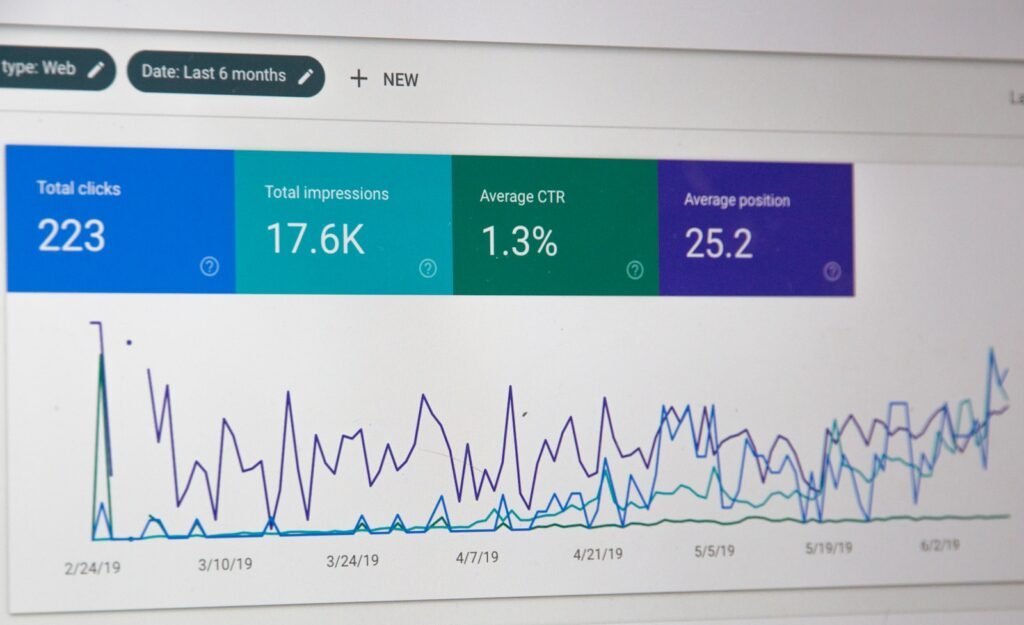In the ever-evolving digital landscape, lawyers face increasing competition to stand out online. As we move into 2024, the importance of a strong online presence for law firms cannot be overstated. Search engine optimization (SEO) remains a crucial tool for attorneys looking to attract more clients and establish their expertise in the legal field. In this blog post, the experts at Houston Law Firm SEO discuss effective strategies for lawyers to improve their search engine rankings in 2024, with a focus on the latest trends and best practices.
Key Takeaways:
- Implement Answer Engine Optimization (AEO) to improve visibility in featured snippets
- Focus on creating high-quality, user-centric content that addresses specific legal queries
- Optimize for local SEO to attract nearby clients
- Enhance technical SEO aspects, including site speed and mobile-friendliness
- Build authoritative backlinks and leverage social media for increased visibility
Understanding the SEO Landscape for Lawyers in 2024
As search engines continue to refine their algorithms, lawyers must adapt their SEO strategies to stay ahead. In 2024, the focus is increasingly on providing value to users and demonstrating experience, expertise, authoritativeness, and trustworthiness (E-E-A-T). Google’s emphasis on these factors means that law firms need to go beyond basic keyword optimization and focus on creating comprehensive, informative content that truly serves their potential clients’ needs.
“In today’s digital age, a lawyer’s online presence is often the first point of contact with potential clients. Implementing a robust SEO strategy is not just about rankings—it’s about establishing trust and credibility in your field,” say the experts at Houston Law Firm SEO.
Implementing Answer Engine Optimization (AEO)

Answer Engine Optimization is becoming increasingly important for lawyers looking to improve their search engine rankings. AEO focuses on structuring content to provide direct answers to common legal questions, increasing the chances of appearing in featured snippets and “People Also Ask” sections of search results. Here’s how lawyers can implement AEO effectively:
1. Identify common legal questions in your practice area
2. Create concise, informative answers to these questions
3. Structure your content using question-based headings
4. Implement FAQ schema markup on your website
5. Use natural, conversational language that mirrors how people ask questions
By focusing on AEO, lawyers can increase their visibility in search results and position themselves as authoritative sources of legal information.
Creating High-Quality, User-Centric Content

Content remains king in SEO, and in 2024, the emphasis is on creating high-quality, user-centric content that addresses specific legal queries. Here are some tips for developing content that resonates with both users and search engines:
1. Conduct thorough keyword research to identify relevant legal topics
2. Develop in-depth, comprehensive articles that cover legal issues from multiple angles
3. Use clear, accessible language that your target audience can understand
4. Include real-life examples, case studies, and practical advice
5. Regularly update your content to ensure it remains accurate and relevant
Remember, the goal is not just to attract traffic, but to provide genuine value to your potential clients.
Optimizing for Local SEO

For many lawyers, local clients are the lifeblood of their practice. Optimizing for local SEO can help attorneys attract nearby clients who are searching for legal services. Here’s how to improve your local SEO:
1. Claim and optimize your Google Business Profile listing
2. Ensure your NAP (Name, Address, Phone number) information is consistent across all online directories
3. Encourage satisfied clients to leave reviews on Google and other platforms
4. Create location-specific content that addresses local legal issues
5. Build relationships with other local businesses and organizations for potential backlink opportunities
By focusing on local SEO, lawyers can increase their visibility in local search results and attract more clients in their immediate area.
Enhancing Technical SEO Aspects
Technical SEO remains a crucial factor in search engine rankings. In 2024, lawyers should pay attention to the following technical aspects:
1. Improve site speed by optimizing images, minifying code, and leveraging browser caching
2. Ensure your website is mobile-friendly and responsive across all devices
3. Implement HTTPS to secure your website and boost user trust
4. Use schema markup to provide search engines with detailed information about your legal services
5. Create an XML sitemap to help search engines crawl and index your site more effectively
A well-optimized website from a technical standpoint not only improves search rankings but also enhances user experience, which can lead to higher engagement and conversion rates.
Building Authoritative Backlinks
Backlinks remain a significant factor in search engine rankings. However, the focus in 2024 is on quality over quantity. Lawyers should aim to build authoritative backlinks through the following strategies:
1. Create high-quality, linkable content such as comprehensive legal guides or industry reports
2. Participate in legal directories and professional associations
3. Guest post on reputable legal blogs and websites
4. Engage in thought leadership by speaking at conferences or contributing to industry publications
5. Leverage social media to increase content visibility and generate more links to your site
Remember, each backlink should be seen as a vote of confidence in your expertise and authority as a lawyer.
Leveraging Social Media for SEO
While social media signals are not direct ranking factors, a strong social media presence can indirectly boost your SEO efforts. Here’s how lawyers can use social media to support their SEO strategy:

1. Share your content across relevant social media platforms
2. Engage with your followers and participate in legal discussions
3. Use social media to build relationships with other legal professionals and potential clients
4. Encourage social sharing of your content to increase its reach and potential for backlinks
5. Use social media insights to inform your content strategy and identify trending legal topics
By effectively leveraging social media, lawyers can increase their online visibility, drive traffic to their website, and build their brand authority.
Monitoring and Analyzing Your SEO Performance
To ensure the success of your SEO efforts, it’s crucial to regularly monitor and analyze your performance. Use tools like Google Analytics and Google Search Console to track key metrics such as:

1. Organic traffic
2. Keyword rankings
3. Click-through rates
4. Bounce rates
5. Conversion rates
By analyzing these metrics, you can identify areas for improvement and adjust your SEO strategy accordingly.
Call Local Houston Law Firm SEO Experts
Improving your law firm’s search engine rankings requires a comprehensive, ongoing strategy that adapts to the ever-changing digital landscape. At Houston Law Firm SEO, we specialize in helping lawyers navigate the complexities of SEO and achieve lasting results. Our team of experts understands the unique challenges faced by legal professionals in the online space and can develop a tailored SEO strategy to help your firm stand out.
Don’t let your competitors outrank you in search results. Contact Houston Law Firm SEO today for a free consultation and take the first step towards improving your online visibility and attracting more clients for your Houston area law firm.
Frequently Asked Questions About Improving Lawyer Search Engine Rankings
SEO is a long-term strategy, and results typically take 3-6 months to become noticeable. However, this can vary based on factors such as competition and current website status.
Both SEO and PPC have their merits. While PPC can provide immediate visibility, SEO offers long-term, sustainable results. Many law firms find success with a combined approach.
Regularly updating your content is crucial for SEO success. Aim to publish at least 2-4 new pieces of content per month, such as blog posts or articles.
Yes, smaller law firms can compete by focusing on niche practice areas, excelling in local SEO, and creating high-quality, specialized content.
Customer reviews are very important for SEO. They not only influence search rankings but also impact potential clients’ decisions when choosing a lawyer.
Glossary of SEO Terms
1. E-E-A-T: Experience, Expertise, Authoritativeness, and Trustworthiness – factors that Google uses to assess the quality of web content.
2. Featured Snippet: A selected search result that appears at the top of Google’s organic results in a box, aiming to answer the user’s question right away.
3. Local Pack: A set of three local business results that appear at the top of Google’s search results for queries with local intent.
4. Schema Markup: A semantic vocabulary of tags that you can add to your HTML to improve the way search engines read and represent your page in SERPs.
5. SERP: Search Engine Results Page – the page displayed by a search engine in response to a user’s query.
